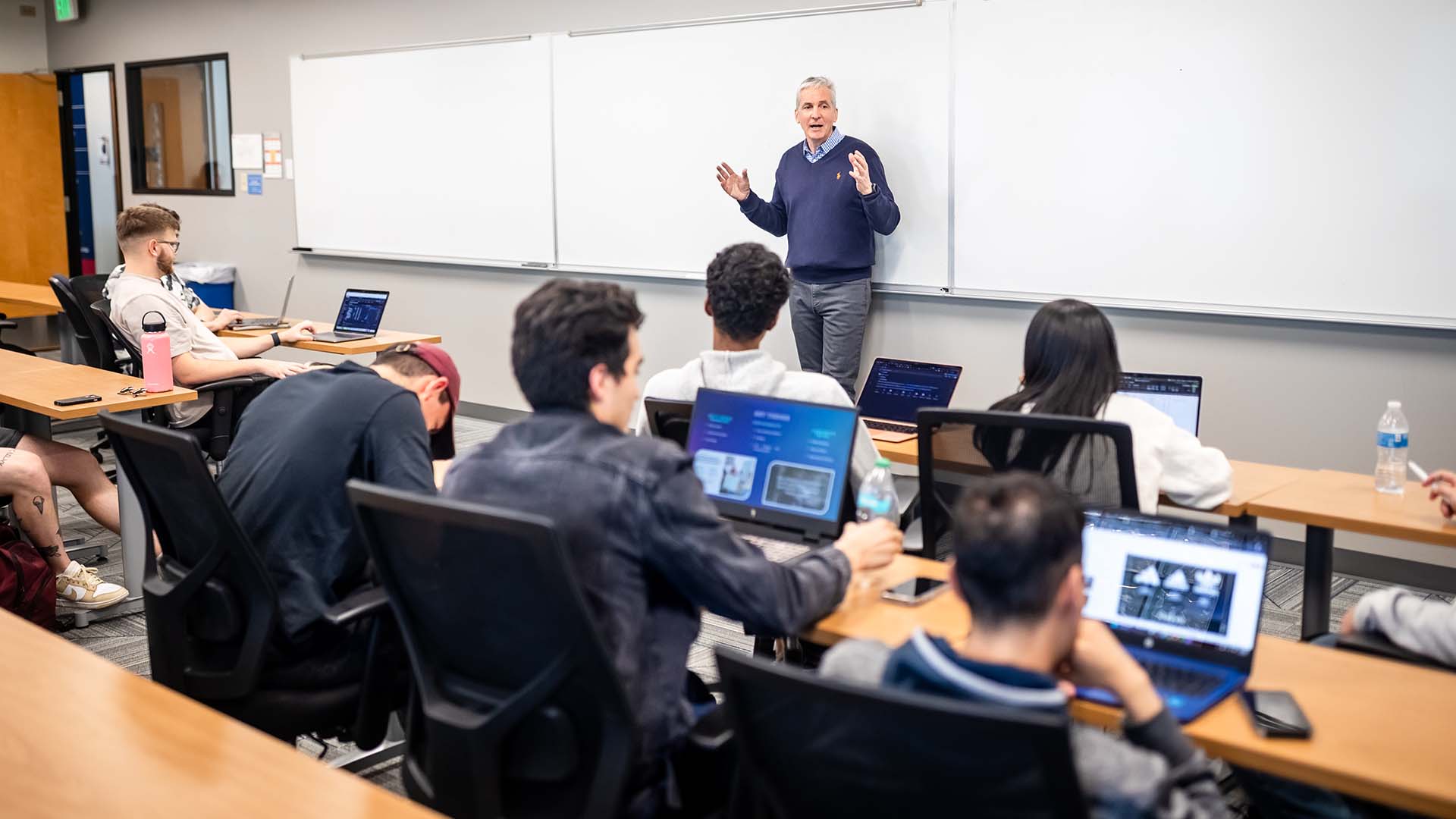Panel ignites discussion on getting women back to work
MSU Denver presents the first of a series of executive roundtable discussions on avoiding the ‘shecession’ and returning women to the workplace.

Aida Beyene was working part-time and taking classes toward a degree to advance her career when Covid hit. Her hours dwindled before she lost her job entirely.
“I really had to get back into the workforce, and I had to figure out how to do it quickly,” she said Wednesday in a virtual panel discussion at the 5th Annual State of Women in Business event. “Then, classes went online, and that was when I felt very disconnected from my instructors and my classmates. It was just a really stressful time.”
“That is such a story of so many of our students at MSU Denver,” said panel moderator Janine Davidson, Ph.D., president of Metropolitan State University of Denver. “So many people’s lives have been disrupted.”
The event, a partnership with women’s leadership network TARRA and the Colorado Women’s Chamber of Commerce, is presented by HealthOne. The series is dedicated to recommending a set of solutions and guidelines for businesses and corporations to ensure that women are hired back, paid equal wages and given equal opportunities for promotion.
The roundtable at which Beyene shared her story was sponsored by MSU Denver and brought together executives, business owners and women who have left the workforce to address what women need now to get back into the workforce. Among its stated goals is developing guidelines to ensure that LGBTQ, BIPOC and AAPI women have equal access to professional opportunities, affordable child care and flexible work options.
Nationwide, the economic downturn caused by Covid has been a disaster for working women, with 2.3 million fewer women in the labor force in January than in February 2020, according to a report from the National Women’s Law Center. The losses leave the women’s labor-force participation rate, the percentage of adult women who are either working or looking for work, at 57%, the lowest it has been since 1988, the report found.
The pandemic hasn’t spared the Denver and wider Colorado economies, said Lisa Martinez-Templeton, economist and data scientist with the City and County of Denver. She presented data showing how Denver’s revenue was projected to decline by $200.7 million in 2020, the steepest drop in city revenue in 87 years. The city also experienced a record-high unemployment rate in April 2020 of 13.4%; that dropped to 9.3% by December.
“Over 200,000 jobs in Denver County were vulnerable to Covid-related job loss, reduced hours or furlough,” Martinez-Templeton said. “And unfortunately, many of these jobs are concentrated in sectors with low wages, and almost half of the jobs at risk affect small businesses that had fewer than 100 full-time employees.”
Many of Denver’s most predominant industries, such as hospitality, food service and retail, run on lower-wage, service-oriented positions mostly held by women, said Jonathan Steiner of the Denver Economic Development & Opportunity Office. Data revealed an 11.4% unemployment rate among women in 2020, compared with 7.4% in men.
Inequity was a problem prior to the pandemic, said TARRA CEO Kate Bailey. “The challenges that women are feeling in the workplace, they’re the same,” she said. “They’ve just been amplified by Covid.”
Even in 2019, women’s unemployment was almost double that of men. Communities of color show a similar dynamic, Steiner said. “So I think no matter how we recover over the next couple months, equity and inclusion have really got to be at the forefront,” he said.
In fact, nationwide, the pandemic hit Black and Latina women hardest, according to Bureau of Labor Statistics data released in February. The unemployment rate in February was 8.5% for Black women, 8.8% for Latina women and 5.1% for White women.
Rather than returning to normal, we have an opportunity to move beyond where we were in March 2020 to achieve more equitable opportunity for women and female-identifying members of the workforce in Colorado and beyond, Bailey said.
Panelist Shannon Block, executive director and chief digital officer of the Markle Foundation, suggests that the bulk of viable job growth in the next 12 months will be in industries such as health care, manufacturing, construction and digital roles. “Decision makers can help people become more aware of these job progressions,” Block said, “making them more accessible, especially for Black women and others facing structural challenges in advancement.”
“There is no better way of tackling the challenge of women experiencing unemployment … than to face it head on,” said Gloria Neal, director of public affairs for the Denver Mayor’s Office.
Beyene is a case study in how such a head-on approach can yield positive outcomes. She connected with the Center for Work, Education and Employment, which granted her a scholarship to pursue the certifications she needs to stay competitive in her field.
“The silver lining is that I got connected with a beautiful nonprofit organization that really advocated for me to get a full scholarship,” she said. “Now, I’m about three weeks away from finishing my courses.”







